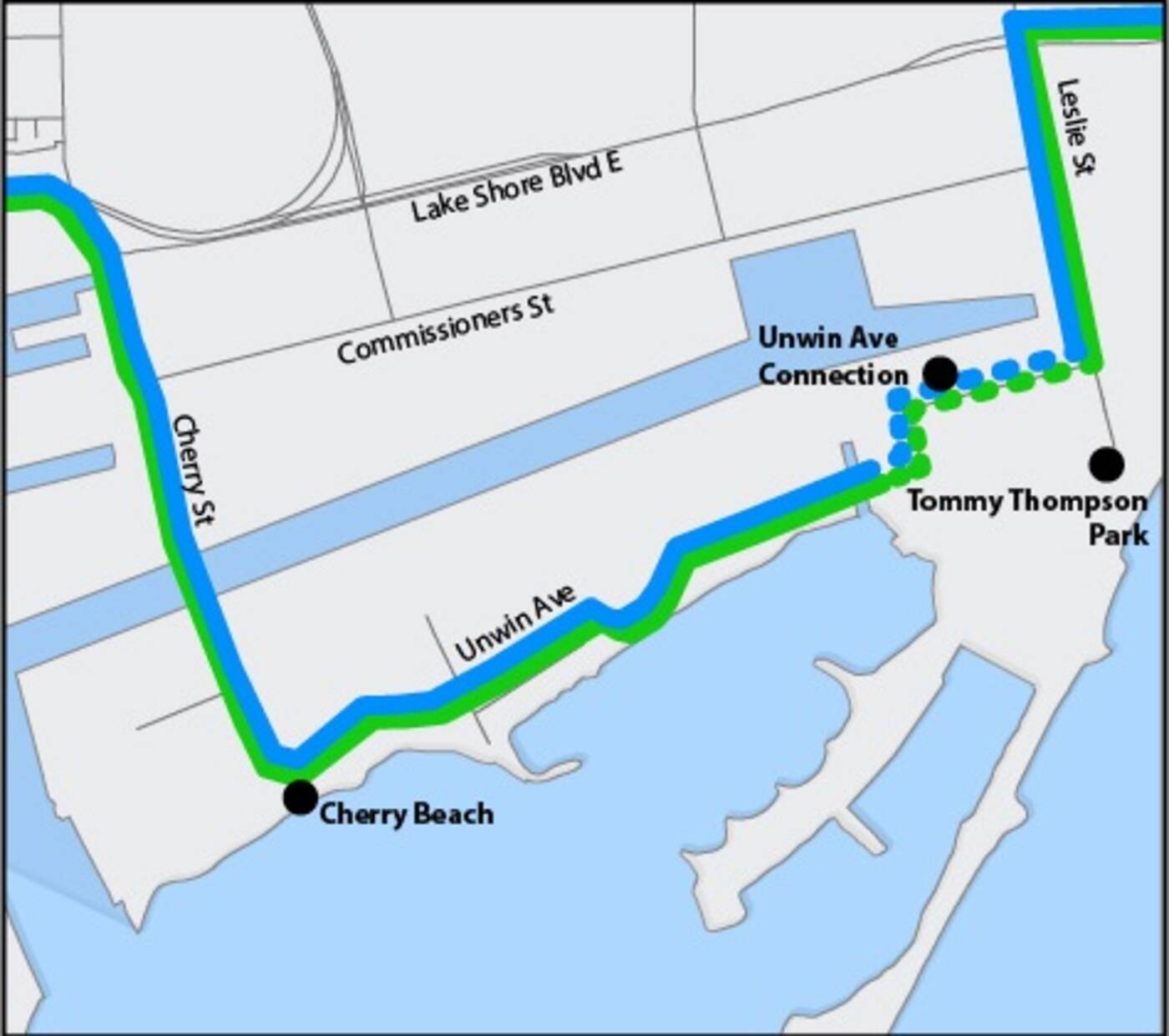
YO, LIL’ CHICKEN-CHEESE EMPANADA IN THA HIZZAY!
Thanks to Meryle for the find!
The post Your rapper name is… appeared first on The Adventures of Accordion Guy in the 21st Century.

YO, LIL’ CHICKEN-CHEESE EMPANADA IN THA HIZZAY!
Thanks to Meryle for the find!
The post Your rapper name is… appeared first on The Adventures of Accordion Guy in the 21st Century.

Having a great boss is a potentially life-changing gift. On the other hand, many of us know firsthand that having a bad boss can cause a lot of drama, headaches, and stress. While it’s easy to love the great bosses and flee the bad ones, there’s one kind of boss that’s much less straightforward to navigate: the boss who doesn’t advocate for you.
You might not even know that you have one. Most advocacy happens behind the scenes and in conversations to which you yourself are not privy. As the adage goes, 80% of what’s said about you is said when you’re not in the room. Non-advocating bosses can refuse to bring up your name favorably in the promotion conversation. They can withhold critical developmental feedback and stunt your growth. And they can even overtly undermine you and attempt to sabotage your long-term career prospects.
When you discover you have a boss who isn’t advocating for you, the knee-jerk reaction is often to advocate for yourself and become your own PR machine. That’s often a mistake. Too much blatant self-promotion in the workplace can backfire and signal that you are narcissistic, egotistical, and ultimately unconcerned about the greater good. You ideally want others tooting your horn for you. Before taking action to close this critical advocacy gap, you’ll want to understand why your boss isn’t advocating for you.
First, consider the possibility that you are actually the problem. In other words, you may not have a bad boss — you just might not have developed enough or demonstrated the skill necessary for the boss to advocate for your advancement yet. Observe the characteristics and accomplishments of the rising stars around you to see where you might improve. Proactively solicit the gift of your boss’s feedback and ask what it would take to earn their advocacy. And perhaps consider getting a coach to help you make the improvements necessary to earn your manager’s advocacy. Seeking and applying your boss’s advice could potentially move them to advocate on your behalf.

When I first started teaching at Northwestern University’s Kellogg School of Management, I met with the dean to find out her expectations. I wanted to understand her perspective on what excellence looks like in my role so I could be intentional about my professional growth. Having these conversations early on with your boss can guide your goal-setting and position you to advance. Without this type of feedback, you might be falling short of your boss’s expectations for promotability and not even know it.
Assuming your performance is strong — and ideally, exceeds expectations — if your boss isn’t advocating for you, the issue likely lies with your boss. While it may not necessarily be your fault, it is your problem. You owe it to yourself to find a workable strategy to advance your career. Here are three steps you can take to navigate the advocacy gap.
Release your boss from your unmet expectations for advocacy. As unfair and frustrating as it seems when your boss doesn’t advocate for you, it’s in your best interest not to take it personally. There are countless possible reasons why your boss isn’t advocating for you. Your boss might be insecure and see you as competition. Your boss may suffer from deep unconscious biases that lead to unfair evaluations of your performance and suitability for bigger roles. Perhaps your boss is trying to advocate for you but lacks the social capital and credibility to successfully advocate for anyone. Or, perhaps your boss may simply not want to be your champion. Whatever the reason may be for the advocacy gap, forcing, manipulating, or shaming someone into being your advocate won’t work. Let go of whatever anger or hurt you have developed because of your boss.
Find another advocate. Ideally, you would have a direct supervisor going to bat for you from the get-go, but your boss isn’t the only person in the organization who can advocate for you. There are other influencers who can give you the boost you need. To navigate your advocacy gap, you want to identify and win the support of executive sponsors. The ideal sponsor is a powerful, high-ranking ally within your organization who will bring up your name with the right people at the right time so that you gain access to opportunity. Your sponsor is your champion in the organization — and sometimes even beyond it.
Many people confuse mentors with sponsors. In short, mentors counsel you, sponsors accelerate you. You don’t want to be over-mentored and under-sponsored. This is particularly important for women and people of color for whom, research shows, hard work alone is usually not enough to get noticed.
Sponsors typically choose their protégés. So, you’ll want to strategically increase your visibility to gain their interest instead of explicitly soliciting their advocacy. For one, produce consistently excellent work. Raise your hand to participate in organization-wide task forces and cross-functional teams. By adding value to important strategic projects for the organization, you’ll build your skillset, add to your experiences, and interact with new people. That way you can develop a reputation for being a reliable, growth-minded leader who is focused on the organization’s objectives. Make it clear that it’s in the organization’s best interest to retain and advance you.
Build your network inside and outside of the organization. The plain truth is that the best leaders have what I call 360° advocacy — that is, advocacy from those above them, those beside them (peers), and their direct reports. Don’t underestimate the value of your peers and your direct reports in bringing your name up and speaking well of you. Being good to people and doing the right thing by people — especially those who may lack formal power in your organization — can cause them to want to advocate on your behalf. Finally, being an engaged citizen beyond your workplace in your industry or your community can help as well. You never know who is connected to whom and how. Sometimes, generating positive buzz beyond the workplace can prompt your organization to take stock of how great an asset you are.
We all need champions who are willing to advocate for us when we cannot speak for ourselves. And when your boss doesn’t do it, it can be downright challenging. But it doesn’t have to stop your progress and career advancement. You could be just one project, one committee, or one conversation away from getting noticed for who you are, what you do, and your potential to achieve even more.
Ontario Provincial Police have made an arrest in a series of beer thefts in Grey County.

Cyclists and pedestrians will soon be able to travel along the shores of Lake Ontario, from one end of Toronto to the other, without ever coming into contact with motor vehicles.
That's right — no more competing for space with trucks between Cherry Beach and the Leslie Street Spit.
Toronto is finally filling in the only remaining gap in its beloved Martin Goodman Trail, a multi-use recreational path that spans all the way from Humber Bay Arch Bridge in the west to Rouge River in the east.

The new trail link will be located along the south side of Unwin Avenue, north of Tommy Thompson Park, in an area known as the Baselands. Image via City of Toronto.
"Once the missing link is completed, it will move trail users off a dangerous road full of large trucks and onto a beautiful and safe passage," said Ward 30 Councillor Paula Fletcher during a press conference this weekend.
"The Martin Goodman Trail connects people to vibrant neighbourhoods and parks along our city’s waterfront," said Mayor John Tory similarly. "This construction will complete the trail giving pedestrians and cyclists a safe option to access our waterfront."
The project has been dubbed the "Unwin Avenue Connection" and is scheduled to be completed by this fall. Construction will begin in mid-July.
A barrier fence will be installed along the entire length of the trail to maintain Tommy Thompsons Park's dog-free status, according to the City, and "eco-passages" will be spaced every 20 metres to allow for the natural movement of wildlife.
Yesterday, after three fortnights at sea, we made landfall in Catan. Here we will make our new lives. Upon stepping off the boat we fell to our knees and thanked God for providing us safe passage to this glorious land.
Catan is a lush, beautiful landscape teeming with natural resources. Well, maybe not teeming. It has five natural resources. There are sweeping forests, towering mountains, fields of wheat, and fields of sheep. Also, fields of big piles of bricks. Where did the bricks come from? Catan is a land of mystery.
We have picked a spot to make our settlement. Unfortunately, some of the good spots were already taken by other groups of settlers. I suggested joining with them in order to increase all of our chances of survival, but that idea was swiftly struck down by our leader, Captain Revis.
“We came to Catan to be free. We will be beholden to no other man,” the captain said, rallying our spirits as only he can. “We will build our own settlement, and it will be the best settlement in all of Catan.” Everyone cheered.
The spot we chose is bordered on two sides by forest and on the third by one of those huge brick piles. The landscape here shifts abruptly. One moment you are walking through dense foliage and then, suddenly: bricks. It takes some getting used to.
A note on the sheep: it appears that they are the only animal in all of Catan. Strange. I cannot help but slightly mistrust this place.
Our location does not allow us access to any wheat or sheep, and as a result, we are very hungry. Weeks ago I tried to raise this issue but Captain Revis quickly changed the subject.
“Food can come later,” he shouted. “First, we build a road. We will have the longest road in all of Catan!”
This proclamation spurred everyone into a frenzy. Now, the whole settlement speaks of nothing but the road, which remains the only thing we have worked on since we came here. No one has houses. We all sleep on the road. I am not sure how much longer I can go on like this.
I have been trying to talk some sense into my fellow settlers, the gist of my argument being: it’s not too late to move the settlement closer to a wheat field. As a result, everyone now refers to me as “Wheat Boy.” They chant these words at me as they see me approaching, which I believe undermines the degree to which I am taken seriously.
Wonderful news! Captain Revis has decided that we should build another settlement and this one is right next to two wheat fields. Finally, we’ll be able to have some real food.
Well, I spoke too soon. Turns out we’re not allowed to eat the wheat. We have to save it for potential trading. Captain Revis has gotten everyone all excited about the possibility of trading wheat for ore. Curse him and his stupid lantern jaw, lustrous beard, and commanding speaking voice. I should have shoved him overboard when I had the chance.
For reasons that are entirely unclear to me, we have begun construction on an institute of higher learning called the “University of Catan.” This despite the fact that we have no institutes of lower learning and the mud-covered, illiterate, starving children of the settlement run rampant up and down the road, pelting us with stones as we work. The entire rationale behind the University, as far as I can tell, is: “no one else has one.”
This is only the latest in a long line of catastrophic decisions. Most recently, we began building a second road and then, upon learning that it would have to intersect with another settlement’s road, abandoned the project entirely. Everyone seems to think it’s impossible for two roads to cross.
Also, it’s weird that we keep treating the bricks like something that must be harvested intermittently. They’re bricks. It’s not like they’re going anywhere.
I have decided to decamp for another settlement. My great hope is to find a like-minded group who are content to live simply off the land, who do not measure everything they do against the accomplishments of other settlements, and who do not have to subsist on a paste made from ground bricks and mud. I believe such people are out there, somewhere.
After days of wandering, I arrived at another settlement, where I was welcomed warmly. The settlement is rich in sheep, I was informed. My spirits soared.
Unfortunately, my happiness was short-lived, as I was then informed that the sheep are not to be touched. The settlers are trying to collect enough sheep to build a city. A city made out of sheep, I guess.
I have had enough. I am leaving Catan entirely. There is something about this place that brings out the competitiveness in people and makes them behave irrationally. Besides, I’ve heard tell of a new land. A land made entirely out of candy. A Candyland. And apparently, everything is a whole lot simpler there.